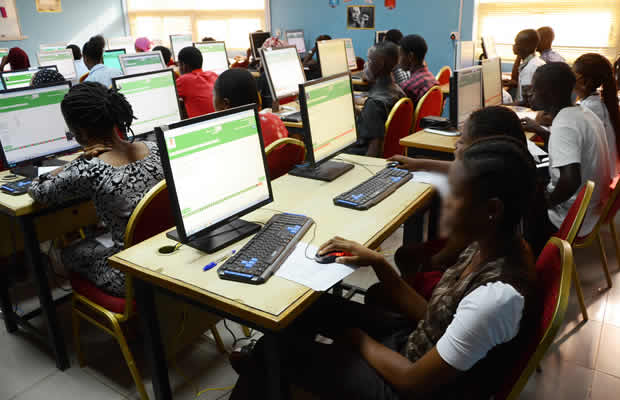The 2025 Unified Tertiary Matriculation Examination (UTME) results released by the Joint Admissions and Matriculation Board (JAMB) have sparked outrage and accusations of deliberate manipulation, particularly from the Academic Staff Union of Universities (ASUU) at the University of Nigeria, Nsukka (UNN). The ASUU-UNN branch chairman, Óyibo Eze, has publicly denounced the results, alleging a targeted effort to disadvantage students from the South East region of Nigeria. Eze points to the disproportionately high failure rate among candidates from the South East and Lagos State, areas with significant Igbo populations, as evidence of this discriminatory practice. He claims to have been inundated with complaints from parents and the public, expressing their concerns about the unusually low scores achieved by students who had demonstrated academic proficiency in the past.
The core of ASUU’s contention rests on the stark contrast between the UTME scores and the known academic capabilities of the students. Eze highlights the case of University Secondary School, Nsukka, a reputable institution known for its high academic standards, where, shockingly, no student scored 200 or above in the UTME. He argues that such a result is statistically improbable and indicative of a systemic flaw in the examination process or, worse, deliberate manipulation. ASUU-UNN questions the justification for penalizing all students at a center if only a few are suspected of malpractice. The union contends that the collective punishment approach is unjust and unfairly jeopardizes the academic futures of innocent students who had diligently prepared for the examination. The perceived injustice has fueled calls for a thorough review of the results and a more equitable evaluation process.
Eze has called on JAMB to immediately review the results and award students their deserved scores, threatening legal action if the board fails to rectify the perceived injustice. He asserts that JAMB is aware of the higher score requirements imposed on students from the South East compared to their counterparts in other regions, which often allows students from other regions to gain admission into prestigious programs like medicine with significantly lower UTME scores. This perceived disparity further strengthens ASUU’s claim of discriminatory practices. The union argues that the current system creates an uneven playing field, effectively limiting opportunities for students from the South East to pursue higher education. The demand for a review is not merely about correcting individual scores but also about addressing a systemic issue that perpetuates educational inequality.
Beyond the legal threat, ASUU has also appealed to the governors of the South East states to intervene in the matter. Eze urges the governors not to remain passive observers while the academic future of their constituents is jeopardized. He emphasizes their responsibility to protect the educational interests of the youth in their states and challenge what he perceives as a deliberate attempt to marginalize the South East. The call for gubernatorial intervention highlights the gravity of the situation and the need for a united front against the perceived injustice. It reflects a growing concern that the UTME results are not merely an academic issue but a socio-political one with potentially far-reaching consequences.
The controversy surrounding the 2025 UTME results underscores the critical role of standardized testing in determining access to higher education in Nigeria. It highlights the potential for such systems to be perceived as tools of discrimination and the importance of ensuring fairness and transparency in their administration. The allegations leveled by ASUU-UNN raise fundamental questions about the validity and reliability of the UTME as a measure of academic potential, particularly when the results appear to deviate significantly from established patterns of student performance.
The situation calls for a thorough and impartial investigation into the examination process, including a review of the scoring methodology and the handling of suspected malpractice cases. It also necessitates a broader conversation about equitable access to higher education and how to address regional disparities in admission requirements. The future of countless students hangs in the balance, making a swift and just resolution to this controversy imperative. The outcome of this situation will undoubtedly have significant implications for the credibility of JAMB and the future of university admissions in Nigeria. It remains to be seen how JAMB will respond to the allegations and the mounting pressure for a comprehensive review of the 2025 UTME results.


